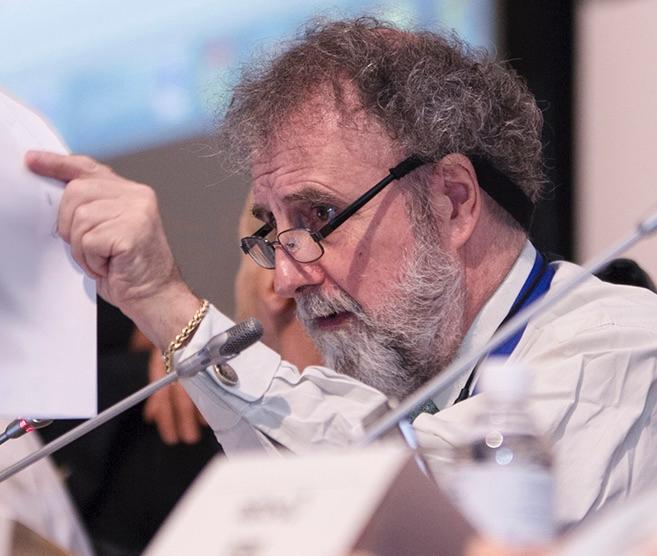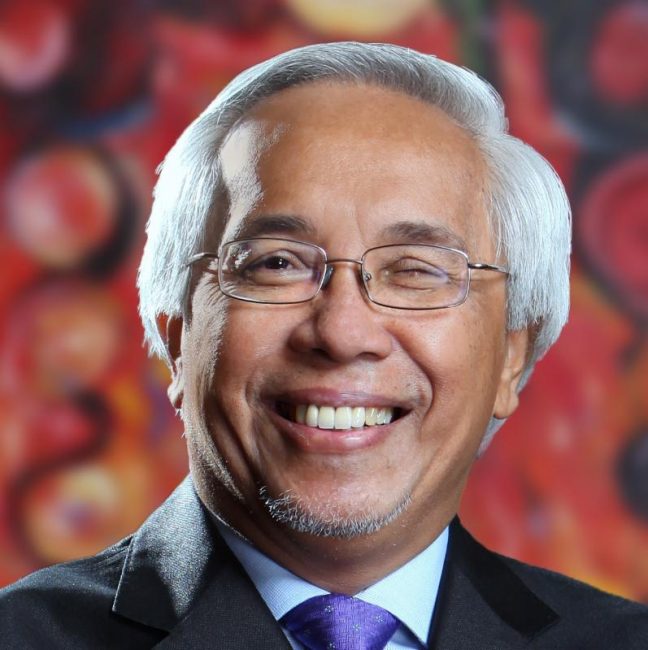The launch of an ambitious new three-year scientific assessment of biodiversity and ecosystem services was announced in Kuala Lumpur, the capital of Malaysia, on Sunday (February 28, 2016) at the close of a week-long meeting of the Intergovernmental Science-Policy Platform on Biodiversity and Ecosystem Services (IPBES).

Similar to the Intergovernmental Panel on Climate Change (IPCC), IPBES is an independent intergovernmental body for assessing the state of the planet’s biodiversity, its ecosystems and the essential services they provide to society. IPBES is open to all member countries of the United Nations and currently has over 124 members.
The new global assessment, for completion by 2019, will measure progress towards meeting commitments under the Strategic Plan for Biodiversity of the United Nation’s Convention on Biological Diversity (the Aichi Biodiversity Targets, 2011-2020) and the UN’s 17 Sustainable Development Goals, agreed to by 193 UN member nations in September 2015.
IPBES also announced the completion of an assessment of scenarios and models that provide a new approach for helping policy makers evaluate the impacts of their decisions related to biodiversity and ecosystems services protection.
The report, titled The Methodological Assessment of Scenarios and Models of Biodiversity and Ecosystem Services, was adopted on Sunday by representatives of IPBES’s 124 member nations.
The report describes how scenarios and models can help decision makers evaluate the future impacts of today’s policies or management decisions. Examples include the use of scenarios and models to sustainably manage fisheries or to carry out land use planning that balances needs for development and biodiversity protection.
“The scenarios and models assessment is the starting gun for mobilising scientists, decision makers and other stakeholders to jointly embark on an ambitious, global effort to better understand and use scientific information about biodiversity and ecosystem services,” said Dr Karachepone Ninan, IPBES Co-Chair of the scenarios and models assessment and Chairperson of the Centre for Economics, Environment and Society in Bangalore, India.
The scenarios and models will help make better use of the IPBES regional and global assessments, including the new one about to be undertaken. The assessment was conducted by 83 experts and cited more than 3,000 scientific papers and, in two rounds of peer review, received 4,066 comments from 230 independent reviewers.
“IPBES’s goal is to give policymakers and all of society a more complete understanding of how people and nature interact, and how policy and management decisions made today might affect these interactions in the future,” said Dr Simon Ferrier, the scenarios and models assessment’s other Co-Chair and Senior Principal Research Scientist with CSIRO, Australia’s National Science Agency.
The new biodiversity and ecosystem services assessment will be overseen by a new IPBES Bureau that was elected on Sunday by the organisation’s member nations meeting in Kuala Lumpur at the IPBES 4th annual plenary, (IPBES-4).

Sir Robert Watson, the organisation’s former Vice-Chair and the former Chair of the Intergovernmental Panel on Climate Change, was elected Chair of IPBES by acclamation. Dr. Watson serves as Director of Strategic Development at the Tyndall Centre for Climate Change Research, University of East Anglia.
He succeeds Zakri Abdul Hamid, who led IPBES from its inauguration in 2012. Prof. Zakri is a renowned expert in science diplomacy. He currently serves as Science Advisor to the Prime Minister of Malaysia, is one of 24 members of the UN Secretary General’s Scientific Advisory Board, and co-Chairs the Malaysian Industry-Government Group for High Technology (MIGHT).
Said Prof. Zakri: “The release of two outstanding assessment reports at IPBES-4, including Friday’s landmark report on pollinators, marks the emergence of the organization as a major global voice for biodiversity and ecosystem services. I am honoured to have chaired the meetings of IPBES over these first few years. I wish my friend and successor Bob Watson and all IPBES stakeholders continuing success in this work so vital to humanity and to all the species with which we share the Earth.”
Dr. Watson, addressing the Plenary, said: “It is an honor to have been elected the second chair of the IPBES, and in particular to have been chosen to succeed Dr. Zakri, who has so ably led the IPBES through its early and formative stages. He is a gentleman, a world-renowned scientist, a statesman, and a man with incredible integrity who has worked at the forefront of the science-policy interface.”
New IPBES Vice Chairs are: Alfred Oteng Yeboah (Ghana), Asghar Mohammedi Fazel (Islamic Republic of Iran), Senka Barudanovic (Bosnia and Herzegovina) and Spencer Thomas (Grenada).
The new IPBES Bureau Members include: Fundisile Goodman Mketeni (South Africa), Youngbae Suh (Republic of Korea), Rashad Allahverdiyev (Azerbaijan), Diego Pacheco Balanza (Bolivia) and Ivar Baste (Norway).
Reactions from supporting organisations have however trailed the development.
Achim Steiner, Executive Director, United Nations Environment Programme (UNEP): “Early outputs of IPBES have demonstrated the unique value of this Platform. Proceeding with an updated global assessment through IPBES will help ensure that we have the best available knowledge to inform our collective efforts toward achieving the Global Goals for Sustainable Development.”
Irina Bokova, Director General, United Nations Scientific and Development Organisation (UNESCO): “Scenarios are important tools for sound management based on societal choices. UNESCO supports the use of scenarios, especially participatory scenarios, to inform decision-making on biodiversity and ecosystem services. Co-production of knowledge using diverse participatory approaches and involving a diversity of stakeholders is key to such choices and decisions.”
José Maria Graziano, Director-General, Food and Agriculture Organisation of the United Nations (FAO): “FAO’s assessments including the State of the World’s Biodiversity for Food and Agriculture to be launched next year will be an important and timely contribution to the IPBES global assessment of biodiversity and ecosystem services. FAO welcomes the collaboration of the different sectors and stakeholders in the areas of environment and agriculture on global assessments, such as the IPBES assessment of biodiversity and ecosystem services.”
Nik Sekhran, Director/Chief of Profession, Sustainable Development, Bureau for Policy and Programme Support, United Nations Development Programme (UNDP): “Decision-making based on sound science and taking into account traditional knowledge is critical for maintaining and enhancing the goods and services that our ecosystems provide. These two IPBES assessments present new opportunities for integrated and informed approaches to development solutions in implementing Agenda 2030. This is particularly significant to UNDP as we commemorate our 50th anniversary, and are looking toward the future of people and planet.”
According to IPBES, its assessments provide policymakers with scientifically credible and independent information with which to make informed decisions about how to protect biodiversity and ecosystem services. It adds that the assessments also put forth methods to interpret the findings and reflect the complex relationships between biodiversity, ecosystem services, and people. Although IPBES assessments lay out various policy options, they do not make policy recommendations.
IPBES assessments are conducted by leading experts who synthesise, review, assess and critically evaluate relevant information and knowledge generated worldwide by governments, academia, scientific organisations, non-governmental organisations and indigenous and local communities.
IPBES experts, who belong to organisations, institutions and the private sector from around the world, volunteer their time for these assessments. They are selected based on nominations from governments and interested organisations. There are currently about 1,000 experts contributing, from all regions of the world, to the work of IPBES.
